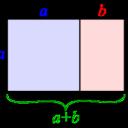Yahoo Answers is shutting down on May 4th, 2021 (Eastern Time) and beginning April 20th, 2021 (Eastern Time) the Yahoo Answers website will be in read-only mode. There will be no changes to other Yahoo properties or services, or your Yahoo account. You can find more information about the Yahoo Answers shutdown and how to download your data on this help page.
Trending News
Need Calculus help (divergent or convergent)?
Here's the problem, n=1 to infinity (5^k /(3^k + 4^k).
So I know that you can use the test for convergence to figure this out, but at first glance, I used the root test and I got the answer equal to 0 meaning it would be convergent.
So by doing the root test, I get lim n(to infinity) 5/ sqrt (3^k + 4^k)
I know the limit of this is 0 do to the stable numerator vs the infinitally increasing denominater.
So can someone explain to me where I went wrong when doing the root test because the series itself is a divergent but I got a convergent using the root test.
It's a series
Robert, yea I did the ratio test and used calculator for that and it got me 5/4, but what I'm looking for is the root test, where did I go wrong with the root test because I got 0 as the answer?
So trying doing to root test by hand and tell me what you get and tell me where I went wrong.
3 Answers
- 9 years agoFavorite Answer
Is it a sequence or a series?
For a sequence, if the value at n=> infinity is zero than the sequence is zero
Bit more complex in a series where one must determine if the value approaches infinity as n=> infinity or whether it stops at some finite value. For example the sequence for 1/n is convergent as a sequence but divergent as a series.
So i checked out Root test and i may have found your mistake, it wont be the square root, rather the K'th root. Also, the sequence is divergent, one can tell using the ration test, I'll leave a link in it for someone that can describe the process better than i, I want you to solve it yourself so that you may learn
Source(s): http://www.youtube.com/watch?v=iy8mhbZTY7g - RobertLv 69 years ago
Technology says that the limit of the root test is 5/4. That would make it divergent.
Working on the ratio test by hand right now.
The ratio test seems much easier.
I end up taking the limit of [5*((3/4)^n + 1)] / (3*(3/4)^n + 4) = 5/4 Divergent series
Edit:
The root test limit is NOT simple to get. However, I think you know at this point that the test for divergence (taking the limit of the terms) shows divergence since that limit is infinity. The ratio test was not too bad but the root test is killing me here. I'll come back to it later.
- Anonymous5 years ago
Use a comparison test. u = ln x and dv = x^(-1/2) dx du = dx/x and v = 2x^(1/2) Ignore the bounds of integration for a moment. INT {ln x / sqrt(x)} dx = ln x * 2x^(1/2) - INT {2x^(-1/2)} dx = ln x * 2x^(1/2) - 4x^(1/2) + C This is the anti-derivative of ln x / sqrt(x). Now include the bounds of integration INT from 0 to 1 {ln x / sqrt(x)} dx = Lim a->0+ INT from a to 1 {ln x / sqrt(x)} dx Because ln x / sqrt(x) isn't defined at x = 0. Now replace INT from a to 1 {ln x / sqrt(x)} dx with the anti-derivative. Lim a->0+ [ln x * 2x^(1/2) - 4x^(1/2)] evaulated at x = 1 and x = a Lim a->0+ ([ln 1 * (2)*1^(1/2) - (4)*1^(1/2)] - [ln a * 2a^(1/2) - 4a^(1/2)]) Lim a->0+ [-4 - ln a * 2a^(1/2) + 4a^(1/2)] Lim a->0+ [-4] + Lim a->0+ [-ln a * 2a^(1/2)] + Lim a->0+ [4a^(1/2)] Let's look at each limit separately. Clearly, Lim a->0+ [-4] = -4 and Lim a->0+ [4a^(1/2)] = 0. Thus, Lim a->0+ [-4] + Lim a->0+ [-ln a * 2a^(1/2)] + Lim a->0+ [4a^(1/2)] simplifies to -4 + Lim a->0+ [-ln a * 2a^(1/2)] Now focus on this limit. It is of the form INF * 0 which is indeterminate. One way is to write 2a^(1/2) as 1 / 2a^(-1/2) and mulitply that by - lna. Then we have -4 + Lim a->0+ [-ln a] / [2a^(-1/2)]. Now use l'hopital's rule. -4 + Lim a->0+ [(-1/a)] / [(2*(-1/2)) a^(-3/2)] -4 + Lim a->0+ [(-1/a)] / [-a^(-3/2)] -4 + Lim a->0+ [1/a] * [a^(3/2)] -4 + Lim a->0+ [a^(1/2)] -4 + 0 -4 <= Answer



